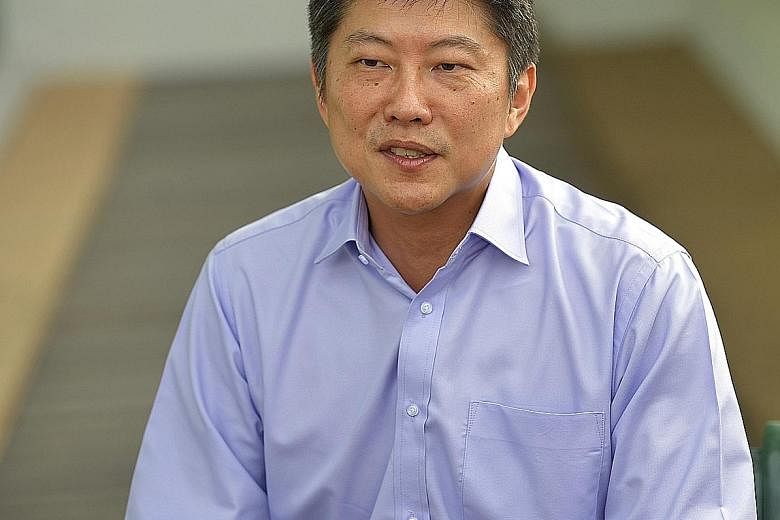Sporting or artistic talent, or specific academic ability such as in languages or science - these criteria, instead of general academic ability, will determine whether students are selected under the Direct School Admission (DSA), Education Minister (Schools) Ng Chee Meng announced yesterday.
This comes after a review of the scheme. Since it was introduced in 2004, it has been criticised for moving away from its original intention of recognising diverse talents.
Instead, as Mr Ang Wei Neng (Jurong GRC) put it in Parliament on Monday, it is like a "backdoor" for academically talented pupils, including those in the Gifted Education Programme (GEP), to enter popular schools, such as those offering the Integrated Programme (IP).
Schools offering the IP allow students to bypass the O levels. The GEP is an elite programme for the academically gifted.
The DSA scheme should not be seen as an entry ticket to popular schools, agreed Mr Ng, as he announced a series of tweaks to bring the scheme back to its original aim.
By next year, pupils applying for the DSA will not sit for general academic ability tests. These tests, which assess general reasoning and problem-solving skills, "inadvertently put undue focus on general academic abilities, rather than identifying specific strengths", said Mr Ng.
He added that those with strong general academic abilities "would already be able to qualify for the school with their PSLE results".
Instead, schools will focus their efforts on "identifying sporting talent, artistic talent or academic talent in specific domains, for instance, languages, maths or science", he said.
Mr Ng highlighted how the DSA is supposed to work through the example of CHIJ St Theresa's Convent's hockey team. He said a few of the members joined the school, known for its hockey prowess, via the DSA as "they fell in love with hockey at primary school, and wanted to further develop their talent".
Schools can use a range of assessment tools, such as interviews and auditions, to admit students under the DSA, which grants Primary 6 pupils places in schools before they take the PSLE.
There were 16,000 DSA applications last year - 1,000 more than in the year before. Some 2,800 pupils succeeded in getting a place via the DSA. Mr Ng said about half of those were admitted into the IP.
More pupils whose talents lie beyond book smarts will have a shot at getting into their secondary school of choice with the expansion of the DSA. From next year, all secondary schools will be able to reserve up to a fifth of their non-IP places for pupils entering via the DSA. The non-IP route prepares students to sit the N or O levels at the end of their secondary school education.
This means that autonomous schools and schools with niche programmes, which can currently reserve up to 10 per cent and 5 per cent of their intake for the scheme respectively, will see the cap increased. The cap for independent schools will remain at 20 per cent.
Mr Ng said: "With this expansion, students can better access schools with suitable programmes via DSA, to nurture their strengths, talents and interests."
From 2019, pupils will also apply for the DSA through a centralised portal, using a common application form.
Mrs Lydia Wong, who has two primary school-going children, said: "For years, parents have tried to game the system, such as by sending their kids for special classes to prepare them. But I am glad that MOE is tackling the problem and returning the DSA to its original intent to recognise specific talents. Only then can we help kids to nurture their gifts."


